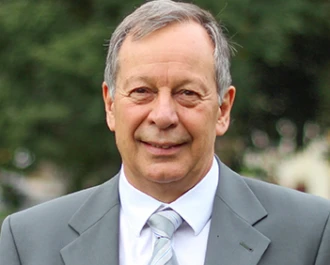
The National Breast Cancer Foundation (NBCF) has awarded 20 game-changing research projects worth nearly $12.4M to support its goal of Zero Deaths from breast cancer.
The 20 research projects, which include developing a blood test to detect breast cancer, analysing the role of Artificial Intelligence (AI) in breast cancer screening, and accelerating targeted therapies for breast cancer, have the potential to radically improve breast cancer detection and treatment, and ultimately reduce deaths from breast cancer. Each year over 3,100 Australians lose their lives from the disease.
Breast cancer is the most commonly diagnosed cancer in Australia and worldwide, with diagnosis rates almost doubling since 1994. This year alone, it is estimated that over 20,000 Australians will be diagnosed and, each day, nine Australians die from the disease.
WE STILL NEED YOUR HELP – DONATE NOW TO SUPPORT BREAST CANCER RESEARCH

NBCF CEO Associate Professor Cleola Anderiesz
Associate Professor Cleola Anderiesz, CEO of NBCF said, “Over the last 28 years NBCF has made a significant improvement to Australia’s breast cancer outcomes through its grants program and I’m proud to present 20 additional talented researchers and their collaborators with the support they need to work towards NBCF’s vision of Zero Deaths from breast cancer.”
“As a completely community-funded organisation, NBCF’s ability to support game-changing breast cancer research relies solely on Australian donations, and to our supporters, we thank you for your continued contributions which make a tangible impact in breast cancer research. This year, 75% of the innovative projects being funded are dedicated to developing new and improved treatments for those with breast cancer to bring us closer to meeting our vision and I’m excited to see the results these projects will bring.”
NBCF has made incredible achievements in Australian breast cancer research since its inception in 1994. Since then, it has invested nearly $200M into almost 600 research projects, unlocking a further $650M through partnerships and collaborations, to help increase the five-year survival rate for breast cancer from 76 percent to 91.5 percent. This equates to nearly 50,000 women and men who have survived to their five-year milestone thanks to funding from the generous Australian community and shows that leading-edge research is the key to stopping deaths from breast cancer.
NBCF will work tirelessly to eradicate breast cancer deaths by identifying, funding, and championing world-class research.
Some of the projects funded this year include:
- Professor Clare Stirzaker (Garvan Institute of Medical Research) – Developing a new blood test for breast cancer detection and monitoring: The study is aiming to develop a new epigenetic blood test to detect breast cancer metastases and identify disease recurrence earlier. While most patients respond well to initial treatment, the disease returns in about 30%, and there are currently no reliable or sensitive tests to identify these relapses earlier.
- Professor Tony Tiganis (Monash University) – Harnessing immunotherapy for the treatment of breast cancer in obesity: Triple negative breast cancer (TNBC) accounts for 15-20 percent of all breast cancer diagnoses. It’s highly aggressive, with poor survival outcomes compared with other breast cancers. There is evidence to suggest that obesity can result in signals that can dampen anti-tumour immunity and decrease the effectiveness of immunotherapy. Prof Tony Tiganis’ project will investigate how obesity influences the development of TNBC and its response to immunotherapy. The results from this study will look for innovative ways to enhance the response of therapies in all patients.
- Professor Georgia Chenevix-Trench (QIMR-Berghofer) – Repurposing approved drugs: Professor Chenevix-Trench’s project aims to reposition Senicapoc, a drug originally developed for the treatment of sickle cell anemia, to treat a group of triple negative breast cancers with poor prognosis that can be identified by high expression of a new breast cancer risk gene, called KCNN4.If proven successful, the drug repurposing opportunity of Senicapoc for breast cancer will reduce the cost of drug development and accelerate translation to the clinic.
- Associate Professor Pilar Blancafort (University of Western Australia) – Identification and treatment of a new deadly subtype of estrogen receptor breast cancer: Most breast cancers express the estrogen receptor (ER+ tumours). This means that they can be targeted with anti-estrogen treatment, or anti-E2s. Most patients respond very well with anti-E2s, but in up to 20% of patients, the treatment is not effective and the tumours are more aggressive. There is currently no way to predict which patients have this aggressive subtype, and A/Prof Blancafort’s project will develop a clinical test for the gene that could allow both detection and treatment for one of the most aggressive and “hidden” subtypes of cancer, which claims the lives of 1,000 Australians a year.
SEE THIS YEAR’S RESEARCH PROJECTS
More News Articles
View all News


